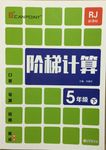题目内容
阅读理解
Americans are not afraid to show how they feel , and when the feeling is patriotism (爱国主义) , they get up and shout about it. They like to read and talk about the heroes of American history. They enjoy patriotic songs like America the Beautiful. And the sight of their flag on important national occasions can bring tears to their eyes.
Americans want to be proud of their president, as well as their country. They like him to be good-looking , religious and a good family man. They want him to be strong , to be a good talker and to be confident about the future. They expect him to keep the prices down at home and to keep the country looking powerful abroad.
A president has to make his job look easy and smile confidently when he speaks to the nation on TV. But in fact , his job is an impossible one. He cannot do as much as he would like or as the country expects him to do. He can make decisions , but he cannot always persuade people to carry them out. President Truman once said that getting anything done from the White House was like “pushing a damp noodle across a table” .
One of the president's biggest difficulties is that every decision he makes must also be approved (赞同) by the Congress. But the Congress can and quite often does refuse to give its approval. A president who knows how to get the Congress on his side is likely to be a successful president.
The United States government is of course more than the president and the Congress. It employs over 18, 000, 000 people. Many Americans think there are far too many of them. “Don't go by train,” they will tell you, “The rail road's no good. It's run by the government. ” It's not really surprising that so many people dislike government's control. After all , many of their grandparents came to the States to get away from powerful governments at home.
Dislike of government's power doesn't stop people from patriotic thought. It certainly didn't stop the Californian who invented a flag waving machine so that people could show their feeling without getting tired.
1.Americans like ________.
[ ]
A.to get up and shout anywhere
B.to hear American beautiful songs
C.to show their patriotism in public
D.to see colourful flags
2.American always ________.
[ ]
A.want their president to look strong and powerful
B.want their president to have a good family
C.expect him to talk a long time on TV
D.expect too much of their president
3.“Pushing a damp noodle across a table” most probably means ________.
[ ]
A.inviting guest to have an easy supper
B.doing something impossible
C.playing a game on the table
D.asking others for something
4.A successful president in USA ________.
[ ]
A.has no biggest problems
B.often gets his decisions approved by the Congress
C.can make decisions without approval
D.often keeps the prices down at home
5.In the sentence “After all , many of their grandparents came to the States to get away from powerful governments at home” , “powerful governments at home” refers to ________.
[ ]
A.American government
B.local state governments
C.governments of other countries
D.American Indian governments
解析:

 阶梯计算系列答案
阶梯计算系列答案
| |||||||||||||||||||||||||||||||||||||||||||||||||||||||||||